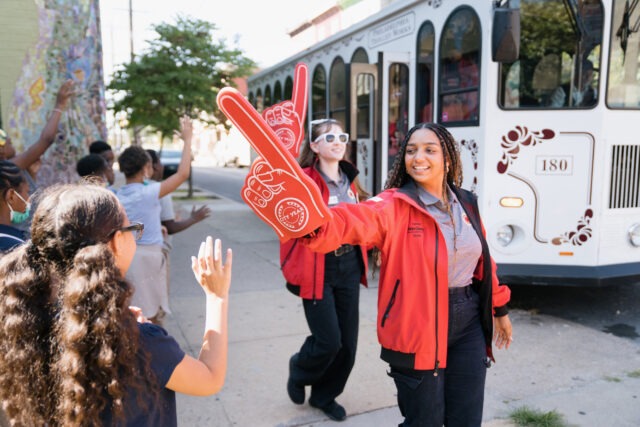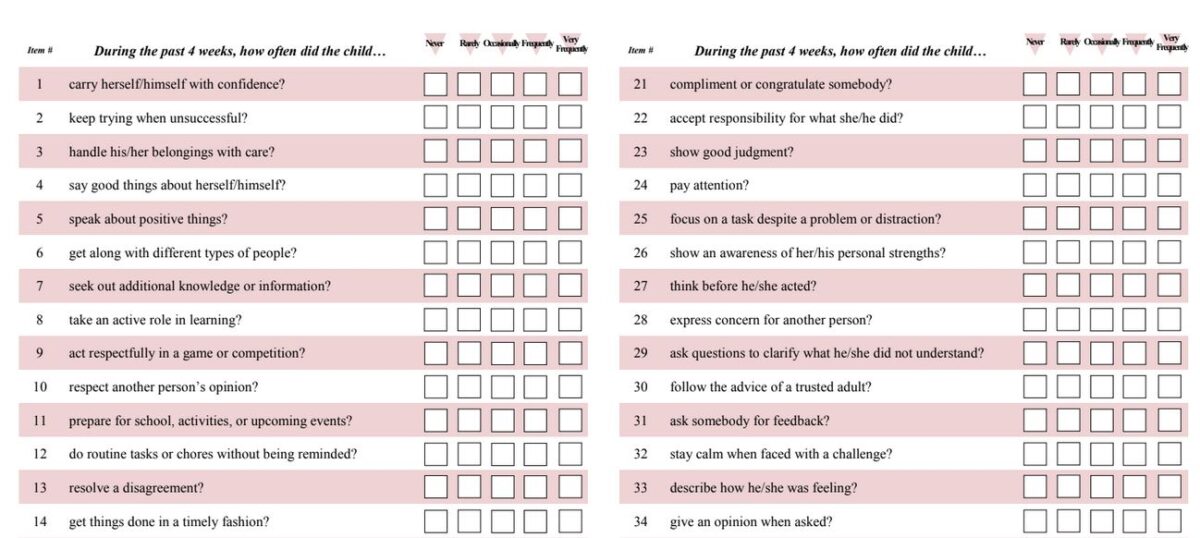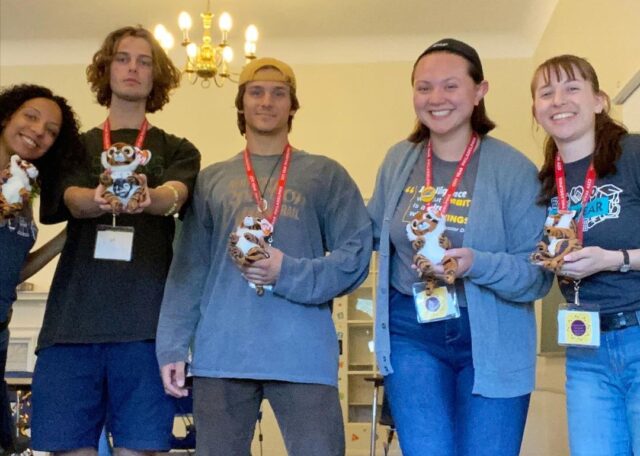City Year 101: Social-Emotional Learning and Mentorship

Students at Hartranft Elementary School eagerly greet City Year Philly AmeriCorps members.
In this new ongoing series, we’ll take a deep dive into the range of City Year Philadelphia’s (CYP’s) work in schools—including social-emotional learning and mentorship, math and literacy interventions, afterschool programs, and school-wide events. Stay tuned to learn more about the many ways our AmeriCorps members support students both personally and academically!
“Social-emotional learning is the foundation of our work before anything else. For our Corps members to have successful academic interventions, afterschool programming, and report card conferences with students, they need to spend the time to establish those relationships first.” -Sara Craige, Learning & Development Director at City Year Philly
Social-Emotional Learning: What It Is and How It Works
Our first blog in this series explores social-emotional learning (SEL), the core of City Year Philly’s work in the classroom. SEL supports the AmeriCorps members to form one-on-one mentoring relationships with their students and to build a foundation of trust and mutual respect that can be leveraged throughout the year and will serve as the basis for their academic work. SEL focuses on growth in seven key skills: responsible decision-making, self-awareness, self-management, social awareness, relationship skills, optimistic thinking, and goal-directed behavior.
Learning & Development Director Sara Craige and Impact Director Deanna Johnson oversee SEL at City Year Philly. In preparation for the current school year, the Impact Leadership team identified the need to separate the major components of the City Year service model into three separate timeframes of training and implementation. This starts with training AmeriCorps members on SEL and relationship development during Service Learning Institute (SLI) in August.
Sara explains, “SEL is the foundation of our work before anything else. For our Corps members to have successful academic interventions, afterschool programming, and report card conferences with students, they need to spend the time to establish those relationships first.”
While SEL may seem challenging to measure, CYP has adopted a simple method. Every six weeks, Corps members complete a 42-question survey about each student whom they mentor, known as DESSA (Devereux Student Strengths Assessment). The survey asks Corps members to share their honest impressions of students’ behaviors and interactions with others. Based on this feedback, DESSA recommends specific skills that Corps members should work on with each student. This method also helps track student improvement throughout the year, as well as the effectiveness of different SEL strategies.

An example of a DESSA questionnaire. Photo credit: NYC Public School Parents.
Each CYP Corps member works with eight SEL focus list students for thirty minutes per week. SEL sessions can take three different forms, depending on each student’s particular needs:
- Mentoring Sessions: In these 30-minute sessions, the student and Corps member meet one-on-one during class time and discuss the student’s goals and what’s going on in their life, either at school or at home. This format can be especially beneficial for students who require personalized attention. These meetings tend to be more structured, using tools from DESSA and/or CYP’s SEL resource bank.
- Check-In/Check-Outs: This format consists of two 15-minute meetings, one check-in on Monday morning and one check-out on Friday afternoon. The Monday meeting focuses on setting goals and expectations, and the Friday session debriefs on how well the goals were met and how the student can improve. This method is helpful as a more informal way of supporting students in reaching their goals.
- Lunch Bunches: During these sessions, Corps members host a lunch meeting with their students, where they play games, eat, and connect through conversation. This method is especially useful for older students who may benefit from “near-peer” mentoring in a less structured environment. It provides an opportunity to build camaraderie with students, which can often lead to students opening up to their Corps members as they grow to trust them.
“Being a good listener is key. My students know they can ask to have lunch with me or go for a quick walk and talk, which are the best spaces for me to get to know them and hear what they have to say.” -Kat Fitch, Second-Year Corps member at Cassidy School
Student Success Stories
Lucy Flattery-Vickness, Team Leader at Kensington High School, returned for her second year of service at the same partner school. Lucy spoke about one of her 10th grade students from last year—referred to as “W” for privacy—who began the year with low attendance and struggled with self-esteem. W initially did not trust City Year Corps members, but Lucy persisted and began inviting her to lunch bunches. She agreed to attend alongside some of her friends.
Over the course of the year, Lucy was able to build a solid relationship with W. Eventually, W became so comfortable around Lucy that she opened up about some personal challenges she was facing at home. Together, they were able to work on emotional resilience skills that helped W be able to focus on school more. By the end of the year, W’s attendance had improved significantly and she spent every lunch period with City Year. Although W is no longer in a CYP partner classroom, Lucy still makes an effort to check in with her and keep up to date on how she’s doing.
Lucy shares, “I came back for a second year of service because I believe our students deserve stability and consistency. I wanted to continue to build and grow my relationships with students and help to further integrate City Year into the Kensington community.”

Lucy (pictured far right) with her 2022-23 Kensington High School team. Go Tigers!
Kat Fitch is a second-year Corps member at Cassidy Elementary School in a 5th grade partner classroom. She was fortunate to be paired with the same partner teacher and students for a second year in a row, which has made it easy to continue building relationships both inside and outside of the classroom. Kat shares, “Being a good listener is key. My students know they can ask to have lunch with me or go for a quick walk and talk, which are still the best spaces for me to get to know them and hear what they have to say.”
Kat spoke about supporting one of her students last year who was being bullied. She taught the student to stand up for herself without using violence. Through SEL mentoring sessions, the student was able to internalize the lesson. She even taught some of her friends the same thing!

Kat (pictured second from right) with her Cassidy teammates at CYP’s Back to School Block Party in September.
Stay tuned for the next blog in this series, as we share more about CYP’s literacy supports for students!
Are you considering a year of service, or do you know someone who is? Learn more about how you can serve as a full-time mentor and tutor with City Year Philly. Click below to start your journey.
Related stories
Student Success Coach Riya Sembhi (pictured front row, right, with her Sullivan Elementary team) shares her experiences serving a gap...
Read more about My Gap Year with City Year PhiladelphiaLeft: Hanna during her time serving as a City Year Philadelphia AmeriCorps member, 2019-2020. Right: Hanna in her current role...
Read more about Alumni Spotlight: Hanna Kim (‘20), Community Schools Volunteer Coordinator, City of PhiladelphiaPhiladelphia City Council President Kenyatta Johnson (pictured center, gray suit) is joined by leaders of local youth-serving organizations—including CYP Executive...
Read more about Spotlight on Kenyatta Johnson, City Year Philly’s 2024 Idealist of the YearIf you speak with an HBCU alum about their experience, you’ll quickly learn that service to the community is one...
Read more about Diversity, leadership and community: reflections of an HBCU alum















